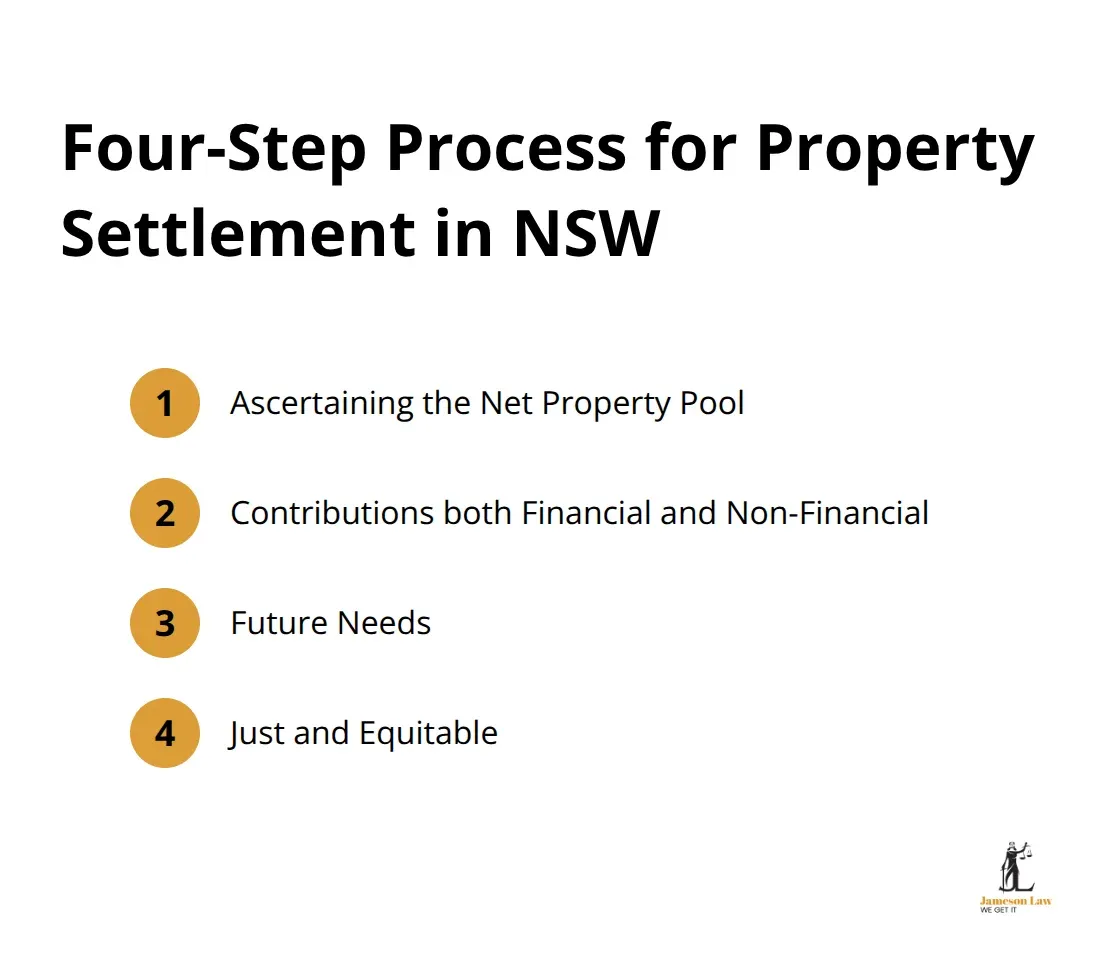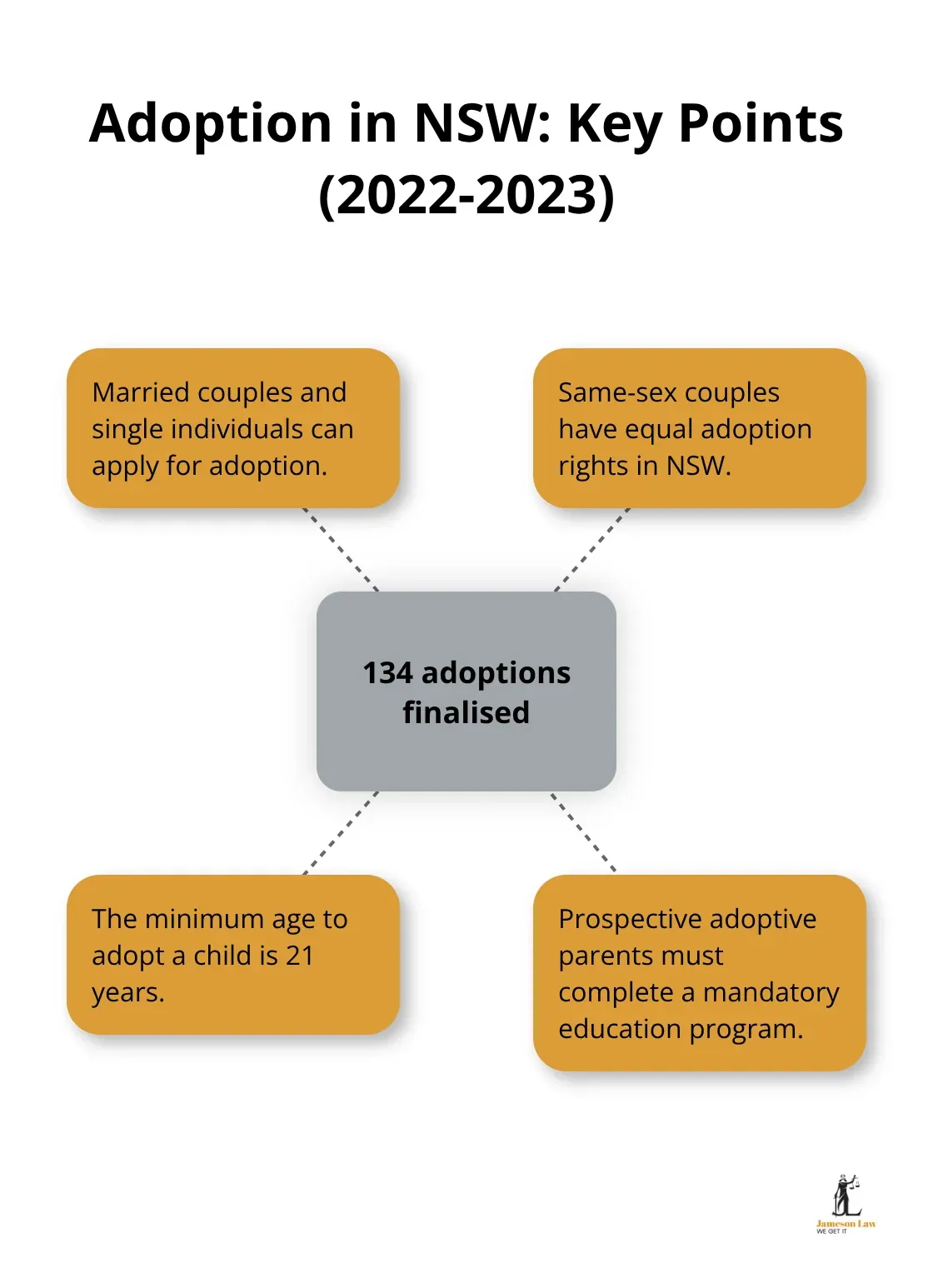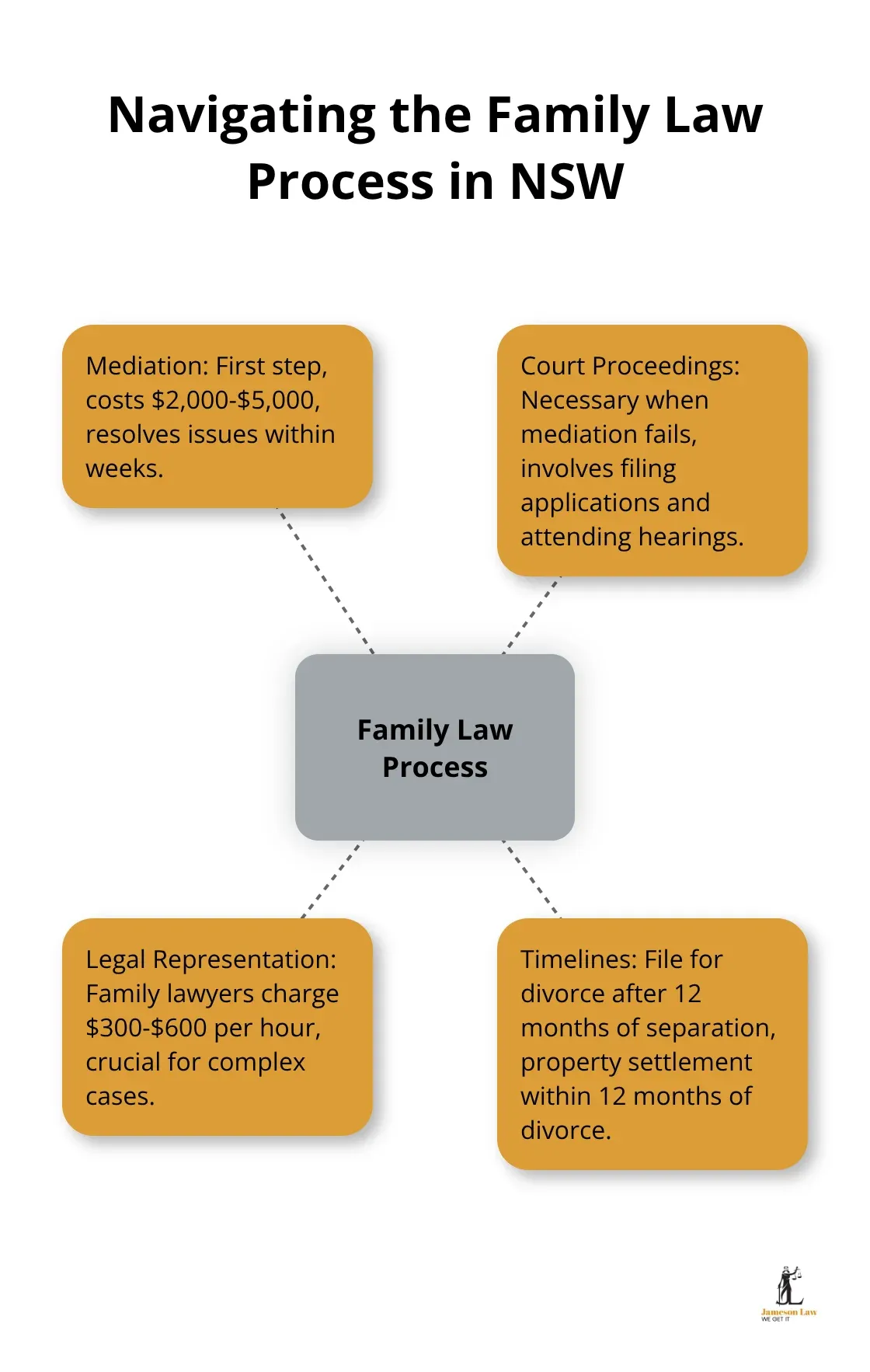Family law in New South Wales can be complex and emotionally challenging. From marriage and divorce to child custody and property settlements, navigating these legal waters requires a solid understanding of the state’s regulations.
At Jameson Law, we have seen firsthand how the right information helps clients make confident decisions. This guide breaks down the key aspects of family law in NSW so you can grasp the essentials and take the next steps with clarity.
Key Aspects of NSW Family Law
Marriage and De Facto Relationships
In NSW, family law recognises both marriages and de facto relationships. A de facto relationship involves a close personal relationship between two adults who live together. This recognition gives de facto partners similar rights to married couples in property settlements and financial matters.
NSW family law fully recognises same-sex relationships. All couples have the same legal protections and obligations. For practical steps on formalising arrangements, see the court’s guidance on financial orders and our overview of Binding Financial Agreements.
Divorce and Separation
To file for divorce in NSW, couples must be separated for at least 12 months. This can apply even if you live under the same roof. Start here for process basics and forms on the Federal Circuit and Family Court of Australia website.
During separation, plan your parenting arrangements and property settlement early. For money management during separation, see Moneysmart and the Services Australia separation hub.
Property Settlement
Property settlement in NSW broadly follows a structured, four-step analysis:
- Ascertaining the Net Property Pool
- Contributions both Financial and Non-Financial
- Future Needs
- Just and Equitable
There is no fixed formula. Each matter turns on its facts. Good disclosure, valuation evidence and clear timelines help. Read the court’s guidance on property and finance and our practical guide to property settlement disputes. If you need a specialist, search the Law Society of NSW Accredited Specialists.

Spousal Maintenance
Spousal maintenance is financial support one partner pays to the other after separation or divorce. It is not automatic and depends on need and capacity to pay. Learn the criteria and time limits in our guide to spousal maintenance, then see the court’s page on maintenance applications.
Key factors include age and health, income and resources, work capacity and care responsibilities. If you are negotiating support, consider a consent order for certainty.
Understanding these core areas gives you a solid foundation for any family law issue. Next we look at child-related matters in NSW.
Child-Related Matters in NSW Family Law
Parenting Arrangements
“Parenting arrangements” has replaced the term “custody”. Arrangements cover a child’s living situation, time with each parent and decision-making about health, education and welfare.
The Family Law Act 1975 prioritises a child’s best interests. Recent reforms give courts more flexibility. For practical steps and templates, see parenting orders and our overview of child custody and parenting.
When planning, consider the child’s relationships, their views, work patterns and logistics, and any history of family violence. Document agreements in writing to avoid misunderstandings.
Child Support
Services Australia administers child support using a formula that considers both parents’ incomes and care percentages. Explore the Child Support Estimator. Private child support agreements can offer flexibility but should be formalised for enforcement. See our child support agreements guide.
Adoption
The Adoption Act 2000 (NSW) governs adoption. For current data, see AIHW Adoptions. Eligibility and process information is available from the NSW Department of Communities and Justice.

Key points:
- Married couples and single people can apply
- Same-sex couples have equal rights
- Minimum age to adopt is 21
- Mandatory education and assessment applies
Surrogacy
NSW permits altruistic surrogacy and prohibits commercial surrogacy. Review the Surrogacy Act 2010 (NSW) and speak with a solicitor before conception. See our primer on surrogacy laws in NSW.
Important aspects include independent legal advice, minimum ages, counselling and a written arrangement.
Child-related issues are sensitive and fact-specific. The next section outlines dispute resolution and the court process.
Navigating the Family Law Process in NSW
Mediation: The First Step
Most family matters require Family Dispute Resolution (FDR) before litigation. Learn about services via Relationships Australia NSW and Family Relationships Online. Our team also offers family law mediation services in Sydney.
To get the most from mediation, gather documents, keep an open mind, and focus on workable, child-centred outcomes.
Court Proceedings: When Mediation Falls Short
If mediation does not resolve matters, the Federal Circuit and Family Court of Australia hears family law cases. The typical pathway involves filing, a first court date, interim steps and a final hearing if settlement is not achieved. See our explainer on section 79 principles and practical consent orders.
Manage costs by giving full and frank disclosure early, complying with orders and timelines, and evaluating sensible settlement proposals. For general assistance, visit LawAccess NSW.
Legal Representation: A Wise Investment
Experienced representation is critical in complex property and parenting cases. In NSW, expect to pay around $300–$600 per hour depending on scope and seniority. Consider limited-scope/unbundled services where appropriate, and review budgeting tips to stay on track.

Timelines and Key Considerations
Keep these time limits in mind:
- Divorce applications after 12 months of separation
- Property settlement applications within 12 months of divorce finalisation for married couples, or two years of separation for de facto couples
- Applications for parenting orders at any time, noting early resolution supports children’s wellbeing
Maintain thorough records of communications and finances. This documentation supports your position and reduces disputes.
Final Thoughts
Family law in NSW touches many aspects of life, from relationships and children to homes and finances. Understanding the framework helps protect your rights and plan effectively.
Professional advice is invaluable. Our family law team delivers practical, outcome-focused guidance across divorce, property settlements, parenting arrangements and spousal maintenance. For prompt help in Sydney, call (02) 8806 0866 or contact us today.













